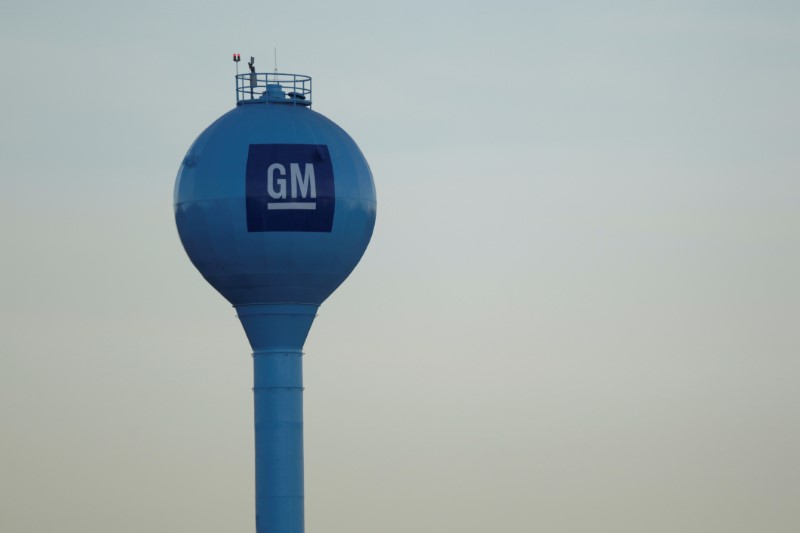© Reuters. FILE PHOTO: The General Motors Co. headquarters is seen in Detroit, Michigan, U.S., January 13, 2019. REUTERS/Brendan McDermid/File Photo
By David Shepardson
WASHINGTON (Reuters) -General Motors said on Wednesday it could face compliance challenges under the Environmental Protection Agency’s proposed vehicle emissions rules and other state and federal regulations, as it cited requirements on electric vehicles.
The largest U.S. automaker said in comments submitted to the EPA that there are six state and federal regulations that “could require each automaker to exceed 50% EVs in at least a dozen vehicle averaging sets in the approximate 2030 timeframe.”
GM said it is “concerned that either a potential lack of clarity or a lack of coordination across the agencies may hinder an automaker’s ability to remain in compliance, year-after-year, across each of these regulatory programs even while meeting EPA’s overall EV targets.”
GM, which in 2021 vowed to halt the sale of new gasoline-powered vehicles by 2035, said on Wednesday that it was confident “in its approach to transition to 50% EVs by 2030, and towards 100% in 2035, but our ability to meet such precise EV shares in every applicable averaging set in each model year is less clear.”
The EPA said in April the proposed 2027-2032 standards would cut emissions by 56% compared with the existing 2026 requirements, or 13% annual average pollution cuts. The EPA estimates would result in 60% of new vehicles by 2030 being electric and 67% by 2032.
Last week, a group representing major automakers including GM said the EPA proposal was “neither reasonable nor achievable” and recommended “adopting requirements for 40 to 50% (electric, plug-in electric and fuel vehicles) in 2030 with continued increases through 2032.”
GM said it supported the “original goals” outlined in President Joe Biden’s August 2021 executive order of 50% of new vehicles as EVs or plug-in hybrids by 2030. It said the goals “represent the appropriate path toward all EVs by 2035 … These goals also recognize the profound uncertainties of supply chain, manufacturing, infrastructure, and consumer market dynamics.”
In June, the Biden administration disclosed GM paid $128.2 million in penalties for failing to meet Corporate Average Fuel Economy (CAFE) vehicle requirements for the 2016 and 2017 model years.
Read the full article here




